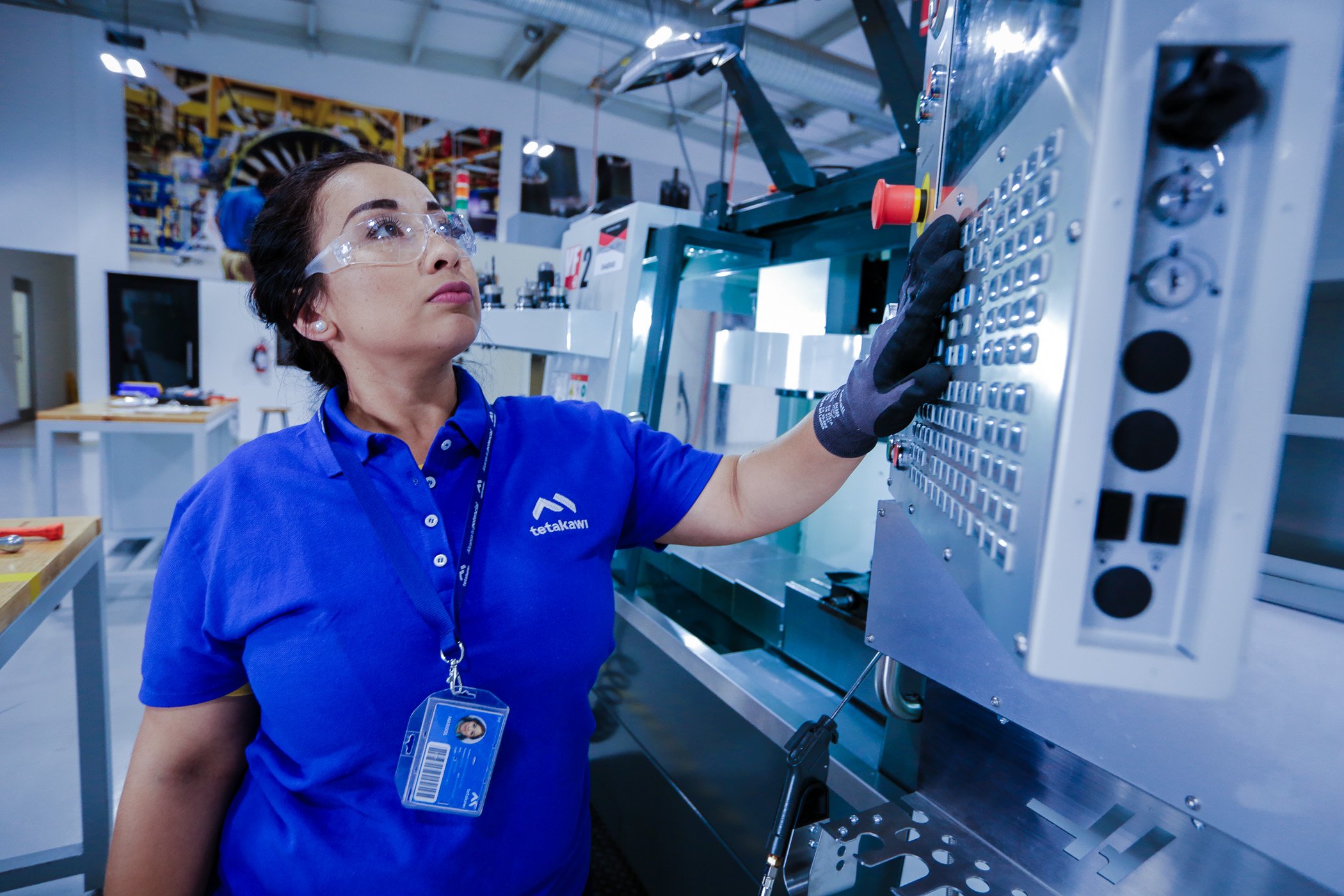DCM Manufacturing Inc.is a Dreison International Co. and a leader in manufacturing, sales and service of OEM products for the mobile HVAC and industrial heat-transfer markets. Corporate offices are in Cleveland, OH, and Grand Prairie, TX.
The company operates a facility in Empalme, Sonora, Mexico under The Offshoer Group's Shelter Plan, and manufactures fractional horsepower motors, centrifugal blowers, axial fans and plastic louvers there, about $1 million a month in product.
DCM Manufacturing became interested in Mexico in 2008, and in 2009 decided to work with The Offshore Group, a manufacturing support, or “shelter,” services, to move into an existing plant that had been occupied previously by an injection-molding company. The move was to better serve large OEM clients that were starting to prefer North American suppliers with near-shored operations because of the longer lead times and ensuing complexities and costs of sourcing from far flung, Asian-based operations.
Fundamentally, the shelter model mimics outsourcing, but the manufacturer maintains control of critical value-added functions such as manufacturing processes and quality control, strategy planning, hiring decisions and product-specific parts-and-materials-procurement. The shelter company handles the administrative side of setting up and managing a plant non-core functions: permitting and regulation, the importing and set-up of production machinery, utilities relationships, payroll and benefit management and even the recruitment of both direct and indirect labor.
Beyond cost savings, the biggest benefits of a shelter model is that manufacturers can launch production much faster. The entire process of setting up a foreign site is simplified and handled by experts, and the producer can devote resources fully to core competencies and serving customers.
Joe Golla, Vice President –Strategic Planning & Global Sourcing for DCM, said the decision to go with the shelter model as opposed to opening a greenfield site had its basis in two reasons:
“We were a little concerned that with the scale of our operation we would add a great deal of overhead with human resources, payroll, safety, union negotiations—all of those things that are attendant to operating in Mexico,” Golla said. “That would have been a lot of overhead relative to our volume. We lacked the expertise, and we were impressed that The Offshore Group had that infrastructure in place. We decided we would ride that infrastructure—for a fee of course, but it was still less expensive than if we had done it ourselves.”
The other lure was the plant opening in The Offshore Group’s industrial park. (The Offshore Group runs two industrial parks in addition to Saltillo at Guaymas and Empalme, Sonora. It has recently begun to offer its services in Guadalajara, Jalisco.
“The industrial space in Empalme, Sonora was already wired and plumbed for injection molding, and we took over an experienced management team and workforce, which was very important to us,” Golla said.
DCM’s Empalme workforce flexes between 75 to 90 people, but the company is adding 15 to 30 people because they are relocated some work now done in China. Golla said production is running at only 50 percent of capacity, but that’s by design because the company expects more work from the Latin American market, which is growing and needs the types of HVAC components vehicles (transportation, construction and agricultural vehicles) that DCM supplies.
“We expect that capacity to be filled in short order because we are in a position to offer the larger customers and an OEMs a completely non-dependent-on-Asia model,” Golla said. “In Latin America there’s a 20 percent duty on products from China, so we were able to immediately drop our costs by 20 percent by near-shoring.”
Those that think DCM’s near-shoring strategy is taking jobs away from U.S. workers would be surprised to learn that the opposite is true. With the emergence of a global economy, companies have had to build global operations. DCM’s near-shoring model is not in place to push down costs as low as possible—rather, it’s to respond to the needs of their global clients.
“Our model is not Mexico-dependent,” Golla said. “Our parent company has greatly expanded our manufacturing opportunities in Cleveland and elsewhere in the U.S. We have stocking facilities in the U.S., and our sales, engineering and other technical positions are in the United States. And we’re hiring in those areas.”
Subscribe
Sign up and stay informed with tips, updates, and best practices for manufacturing in Mexico.



.jpg)

